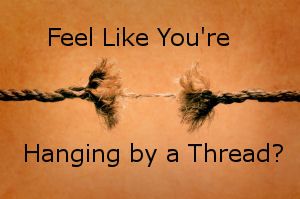Mini Mental Status Examination (MMSE): A Guide for Caregiver Relief
The Mini Mental State Examination (MMSE) is a short test of 30 questions that helps health care practitioners determine the level of cognitive impairment in an individual.

The Mini Mental State Examination (MMSE) is also known as the Folstein test is a cognitive screening test. It is a short test of 30 questions that is used for dementia screening to identify memory problems or dementia symptoms. This is a test that health care practitioners use to determine cognitive functions and the level of cognitive impairment. It is particularly important when examining individuals for Alzheimer disease. The mini mental state exam will not detect early symptoms and changes in cognitive functions. It is cognitive testing used in assessing global cognitive deficits over time. It is considered to be an effective tool to determine an individual’s cognitive changes as well as response to treatment. It is not a test to assess mental status.
**The Mini Mental State Examination (**MMSE) was originally developed in 1975 as an appendix to an article written by Marshall and Susan Folstein and is now published by the Psychological Assessment resources.
This test takes about 10 to 15 minutes and assesses an individual’s memory, orientation, math skills and ability to concentrate. The MMSE test utilizes easy questions that address a number of different areas: the time and place, repeating a list of words, math problems such as the counting by sevens, understanding and language use and the ability to recall. The test also assesses basic motor skills.
What is the MMSE?
The Mini-Mental State Examination (MMSE) is a widely used cognitive assessment tool designed to measure cognitive impairment in older adults. Developed by Marshal Folstein et al. in 1975, the MMSE is a 30-point questionnaire that evaluates various aspects of cognitive function, including orientation, registration, attention, memory, language, and praxis. This test is commonly used in both clinical and research settings to screen for cognitive impairment, estimate the severity of cognitive impairment, and track cognitive changes over time. The MMSE’s structured format and ease of administration make it a valuable tool for healthcare professionals assessing cognitive function in older adults.
Understanding Cognitive Impairment
Cognitive impairment refers to a decline in cognitive function, which includes memory, attention, language, and problem-solving abilities. Mild cognitive impairment (MCI) is characterized by noticeable cognitive decline that does not significantly interfere with daily life. In contrast, severe cognitive impairment greatly impacts daily functioning and may indicate the presence of dementia. The MMSE is particularly useful for detecting mild cognitive impairment and monitoring cognitive decline in individuals with dementia. By identifying changes in cognitive function early, healthcare providers can implement interventions to help manage and potentially slow the progression of cognitive decline.
The Mini Mental Status Exam Scoring
The mini mental status exam scoring has a 30-point rating system. Scores of 25 points and higher are considered within normal range. Scores of points between 10 and 19 are considered to be indicative of moderate stages of dementia, or moderate cognitive impairment. Anyone scoring less than 10 points generally has severe cognitive impairment.
Mental status assessment can be a key part of helping to care for individuals with cognitive disabilities. The MMSE is one tool healthcare providers can use in order to assess the mental status of an individual quickly and accurately. By using the MMSE, healthcare providers can get valuable insight into an individual’s ability to process information, remember facts and figures, recall events, converse, and problem solve. It is a valuable tool for providing insight into the individual’s mental functioning.

Mini Mental Status Exam or MMSE Score
It is important for the layperson to know that while the MMSE scores are guidelines, they are not inconclusive as to determining dementia. The MMSE can help detect dementia by assessing cognitive status. There are many other factors that the health care professional must take into account when determining the mini mental exam score.
For example, there are some individuals that have a higher level of education and achieve a very high score, but have significant cognitive deficits. So an individual’s level of education must be taken into consideration. The test score may also decline with advancing age.
The health care provider administering the test must consider not only an individual’s age, but also the race, ethnicity and education level of the person that is being tested.
It is important to have a comprehensive battery of tests, such as scans, complete physical and medical examination, as well as a complete medical history to determine a diagnosis of dementia.
The benefits if the mini mental (MMSE) is that it is a simple, easy test to administer and is now widely recognized as a validated screening tool. It is also a great tool for health care professionals to utilize the progression of the disease process in an individual and their response to treatment.

Mental Status Assessment Measures Cognitive Functions
The MMSE has been translated into many different languages and even adapted for those with visual impairments. It has become a worldwide standard screening tool.
There are disadvantages to the test. If an individual is unable to read or write, experienced a stroke and is having difficulty communicating, this is not an effective tool. The MMSE relies heavily on an individual’s ability to verbally and physically respond. Those individuals that have difficulty seeing, or physically responding can affect the results of the test.
Recent research has found that the MMSE is an inadequate screening tool to identify early stages of dementia, or mild cognitive impairment. Identifying the early stages of dementia is key to introducing treatment and delaying the course of the condition.
It is important that family members be aware that they may be able to identify cognitive deficits and behavior problems of early dementia and the MMSE may not identify that there is a problem. This is a time when the family member should discuss with the health care provider that more testing should be considered. Early identification and treatment is important. Do not hesitate to ask your health care provider to utilize other screening tools that may identify the early stages of dementia.
More on the Mini Mental Status Exam
The Mini Mental Status Exam (MMSE) is a widely used clinical assessment tool that helps to determine the cognitive impairment of an individual. The mini mental status exam purpose is often used by medical professionals, such as physicians or nurses, to measure attention span, language skills, memory and other mental functions. A mini mental state examination scale score of 0-30 is given based on the participant’s responses and the total score is then used to help interpret the overall mental status.
The higher the score, typically the better an individual’s cognitive functioning. A score of 24 or below may indicate impaired cognition and further evaluation may be necessary. It’s important to note that this exam should not be used as a substitute for a full psychiatric assessment but rather as a tool to help determine whether further testing is needed. A psychiatrist, a neuropsychologist or neuropsychiatrist review the mini mental score interpretation. Ultimately, the Mini Mental Status Exam purpose is to provide important information for medical professionals who are assessing an individual’s cognitive functioning.
In comparison to the MMSE, there is also the Montreal Cognitive Assessment (MoCA). The MoCA is a 30-point questionnaire that assesses various areas of cognition including executive functioning, visuospatial orientation, and language. It can be used as an alternative to the MMSE, however has different copyright requirements and should always be used according to these terms. The MoCA is particularly effective to detect mild cognitive impairment, making it a preferred choice for early identification of cognitive issues.

Mini Mental Status Exam
Overall, the Mini Mental Status Exam and Montreal Cognitive Assessment are both useful clinical assessment tools that aid medical professionals in assessing an individual’s cognitive functioning. They provide important information for mental health professionals in determining if further testing is necessary. Both require copyright permission for use; however, the MMSE can be purchased without any additional fee. Another valuable tool is the revised Addenbrooke's Cognitive Examination, which is often preferred for its effectiveness in evaluating cognitive impairment and differentiating types of dementia.
Uses and Applications of the MMSE
The MMSE has a variety of uses and applications in both clinical and research settings. It is commonly employed as a screening tool for cognitive impairment and dementia, especially in older adults. The test helps estimate the severity of cognitive impairment and monitor cognitive decline in individuals with dementia. Additionally, the MMSE is used in research studies to evaluate the effectiveness of interventions aimed at improving cognitive function in individuals with dementia.
In preventive services, such as those provided by the Preventive Services Task Force, the MMSE helps identify individuals at risk of cognitive decline, allowing for early interventions. The MMSE is often used alongside other cognitive tests, such as the Montreal Cognitive Assessment (MoCA), to provide a comprehensive assessment of cognitive function. In neuropsychological evaluations, the MMSE assesses cognitive function in individuals with neurological disorders, such as Alzheimer’s disease and ischemic vascular dementia.
In clinical settings, the MMSE is used to evaluate cognitive function in individuals with suspected dementia or cognitive impairment. It also monitors cognitive decline in individuals with established dementia and assesses the effectiveness of treatments aimed at improving cognitive function. Overall, the MMSE is a well-established cognitive assessment tool that provides valuable information about cognitive function in older adults, making it an essential tool for healthcare professionals.
Montreal Cognitive Assessment
The Mini Mental Status Exam and Montreal Cognitive Assessment are both important tools for medical professionals in assessing an individual’s cognitive functioning. It is important to remember that these tests should always be used according to copyright requirements and not as a substitute for a full psychiatric assessment. By understanding the purpose of these exams, medical professionals can provide the best care for individuals with cognitive impairment. The MMSE is particularly effective in diagnosing and assessing Alzheimer's disease, highlighting significant impairments observed in Alzheimer's patients compared to those with other types of dementia.
A link to the Mini Mental Status Exam pdf
Our Resource section can help you find the information and tools that you need. We have courses, videos, checklists, guidebooks, cheat sheets, how-to guides and more.
You can get started by clicking on the link below. We know that taking care of a loved one is hard work, but with our help you can get the support that you need.
Click here to go to Resource Section now!
You might also like this article:











